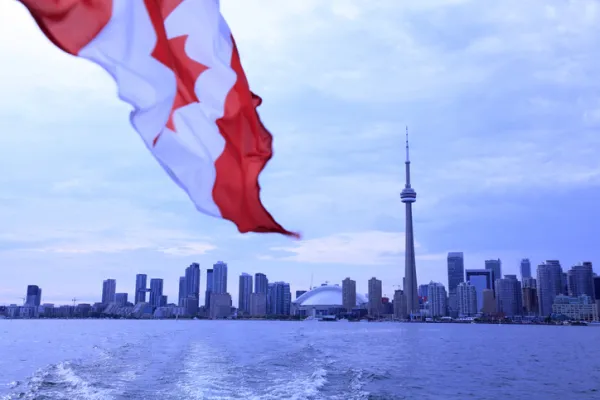America's so-called Bush refugees -- liberals contemplating relocation to a more sympathetic Canada -- might want to reconsider. Suddenly, their northern neighbor is looking like a candidate to become the 51st state -- and a red one, to boot.
Canada's rightward drift comes as the result of a recently revealed scandal that involved as much as $100 million in government money funneled to the Liberal Party and its supporters during the tenure of former Liberal prime minister Jean Chrétien, ostensibly to fight Quebec separatism. Current Prime Minister Paul Martin has not been implicated, but the stink is widely expected to force a snap election as early as next month.
In the most recent polls, the Liberals face a potentially fatal challenge by the Conservatives, a party with uncanny similarities to the Bush Republicans, from their fondness for tax cuts to their antipathy toward the Kyoto Protocol. "The top priority is making Canada the most prosperous country in the world," says Monte Solberg, a member of Parliament and the opposition's official finance critic, who could become minister of Finance should the Conservatives gain power.
The right hasn't governed Canada since 1993, when their party was called the Progressive Conservatives. In 2003 the PCs merged with the populist Canadian Alliance, being largely subsumed in the process. The present-day Conservatives have their base in oil-rich Alberta -- Canada's Texas -- and have edged further right under leader Stephen Harper, a brainy, cool-blooded libertarian who nevertheless draws much of his support from social conservatives. "It's a tension, but not when it comes to fiscal policies," says Solberg of the Republican-like alliance of neoconservatives and the religious right.
Solberg, who runs a country radio station in dusty Medicine Hat, Alberta, envisions a future in which his party won't be handcuffed by probig government sentiment, which Progressive Conservative prime minister Brian Mulroney, best remembered for his friendship with Ronald Reagan, struggled with in the 1980s. Solberg says his party would be relentless in looking out for Canadian interests; it would reduce taxes and focus on the country's mediocre productivity record.
With the exception of massive deficits, Solberg likes almost everything he sees in the U.S., and he's hoping for a chance to build a warmer relationship, including better cooperation on security matters. No comment on whether that includes measures to intercept blue-staters attempting to migrate northward.




